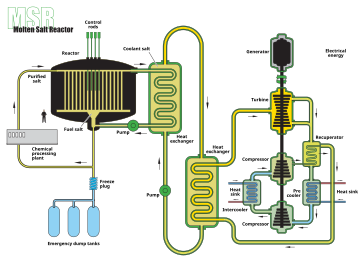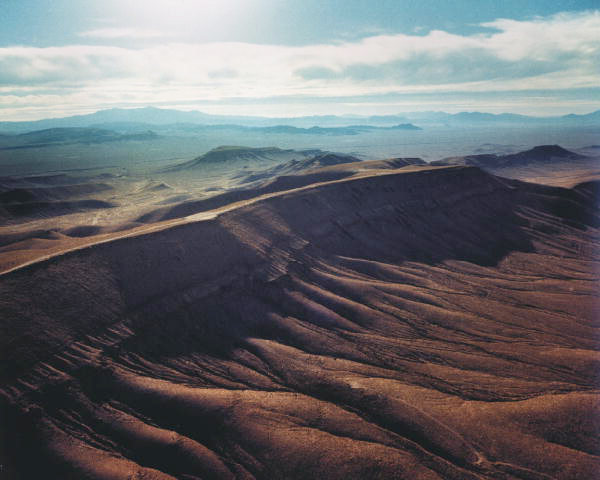Global Issues Andrew du Bois
Unit 4 Thorium: The Best Alternative Energy Source
The element thorium, in the organic form of Thorium-232, can be developed to create energy at a rate that is faster and a price that is cheaper than coal. Another major benefit of thorium is that it produces slightly more than 3% of the hazardous waste than a light water nuclear reactor creates. And, unlike its nuclear counterpart, the waste created by a thorium reactor, that is the waste that isn’t able to be extracted and formed back into distributable energy, is only environmentally toxic for 300 years. That is 1000 times less than the duration currently produced nuclear waste should be stored. This makes developing a long term storage solution for thorium waste much simpler than one for nuclear waste, which has been sucking up precious government funds through failed projects, exemplified by the Yucca Mountain fiasco that took $10 billion in government money and is still not functioning. If those reasons are not enough to convince one that thorium is the best form of alternative energy available, there is always the fact that so little of it is required to produce a reaction that the supply could never run out, supplying the planet with cheap and efficiently produced energy for as long as humans inhabit it. There are many innovations to explore when dealing with thorium, but in my opinion the most effective and the one that would bring the most benefit is a reactor that uses a substance known as molten salt. This molten salt reactor, or MSR, combines thorium and Uranium-233 into a salt mixture. The fluid then goes through the reaction, which removes the toxic waste, along with excess uranium, which can then be used again in a separate reaction. The unique aspect of a molten salt reactor is that the mixture acts as both the reaction to transfer heat into energy and as the matrix to combine the two isotopes, which initiates and sustains the reaction. To make all of this possible, it will require sufficient start up funds from the government to set up a series of reactors across the country. There will not need to be many reactors established, as the energy from a thorium reaction can be used to provide power to an immensely large radius of population. The cost to set this up, however, will not be a major issue. Despite the fact that developing a molten salt reactor does take sufficient funding, once it is created, all that is needed is a steady influx of thorium, which is naturally occurring and easy to obtain, and a supply of graphite which is used to regulate the reaction. A waste disposal site will also need to be established, but as previously mentioned waste products from the reactions are scarce and need to be kept out of the environment only for 300 years, so disposing of waste products should not be an issue. Another great aspect to thorium is, as previously discussed, the supply is endless and the waste is minimal, so there will be no need to curb the consumption to preserve the resource. People can be as wasteful as they please with the energy provided to them from a thorium development plant, because the environmental hazard is minute and there is no way the population could exhaust the supply. Once developed, the facts surrounding thorium can be displayed to the public, and, aside from the heads of oil and traditional nuclear power companies, it would be difficult to convince anyone to support another type of energy, as it is nearly impossible to find a way to produce fuel at a more efficient and environmentally friendly way.
The benefits of thorium energy and of the molten salt reactor are explained in this video








